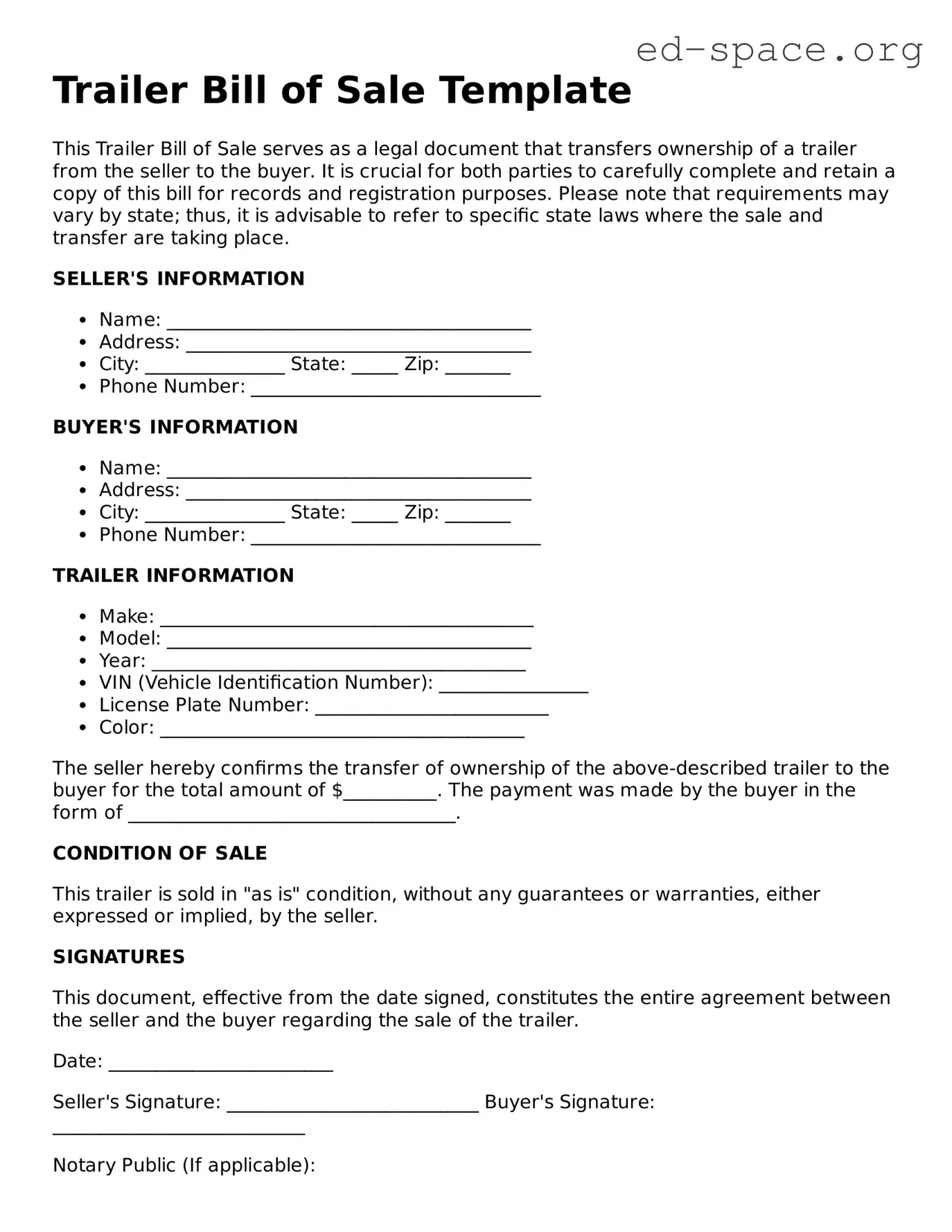What is a Trailer Bill of Sale?
A Trailer Bill of Sale is a document that proves a transaction took place between a seller and a buyer for the sale of a trailer. This document records the details of the transaction and serves as proof of purchase, which can be used for registration, titling, and tax purposes.
Why do I need a Trailer Bill of Sale?
A Trailer Bill of Sale is needed to legally document the sale and transfer of ownership of a trailer from the seller to the buyer. It protects both parties in the case of disputes and is required by many states for tax assessment and title transfers.
What information should be included in a Trailer Bill of Sale?
The Trailer Bill of Sale should include the full names and addresses of both the seller and the buyer, the sale price, the date of the sale, a detailed description of the trailer (including make, model, year, and Vehicle Identification Number), and any warranty information. Both parties should sign the document.
Is a Trailer Bill of Sale legally binding?
Yes, a Trailer Bill of Sale is a legally binding document when it is signed by both the buyer and the seller. It should also be notarized or witnessed to add an extra layer of legal protection.
Do I need to have the Trailer Bill of Sale notarized?
Whether you need to notarize the Trailer Bill of Sale depends on the laws of your state. Some states require notarization to validate the document, whereas others do not. It is advisable to check with your local DMV or legal authority.
Can I write a Trailer Bill of Sale myself?
Yes, you can write a Trailer Bill of Sale yourself as long as it contains all the necessary information needed to prove the transaction and ownership transfer. There are also templates available online that can help ensure you include all required details.
What happens if I lose my Trailer Bill of Sale?
If you lose your Trailer Bill of Sale, you should try to get a copy from the other party involved in the transaction. If that's not possible, you may need to draft a new document, including all the original details, and have it signed again by both parties.
How many copies of the Trailer Bill of Sale do I need?
It's recommended to create at least two copies of the Trailer Bill of Sale: one for the seller to keep and one for the buyer. This ensures that both parties have proof of the transaction and terms of the sale.
Does the Trailer Bill of Sale need to be filed with any government agency?
In most cases, the Trailer Bill of Sale will need to be presented to a government agency like the Department of Motor Vehicles (DMV) when registering the trailer or transferring the title. Check with your local DMV for specific requirements.
What do I do if the buyer or seller refuses to complete the Trailer Bill of Sale?
If either party refuses to complete the Trailer Bill of Sale, it's recommended to not proceed with the transaction. Without this document, you may not have legal protection should disputes arise later. Additionally, transferring ownership without this documentation may be impossible in many states.
